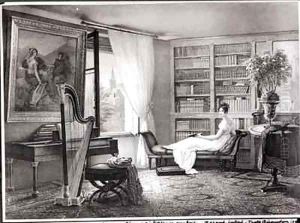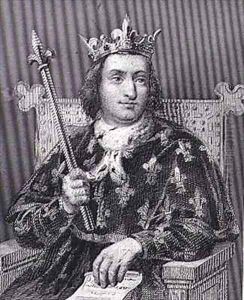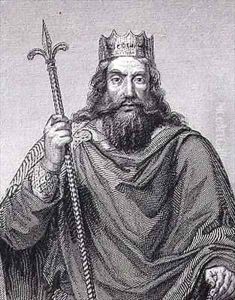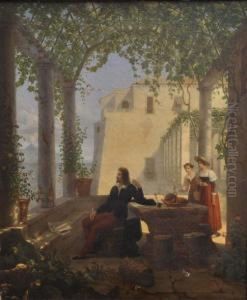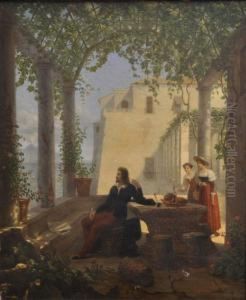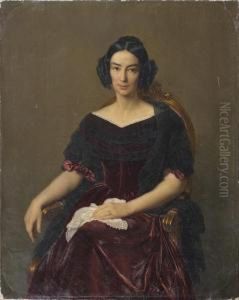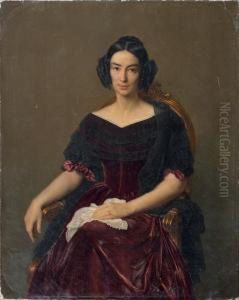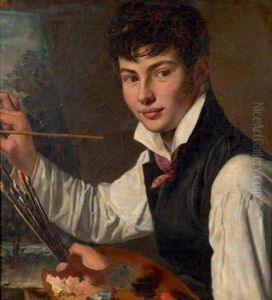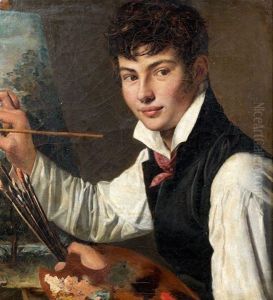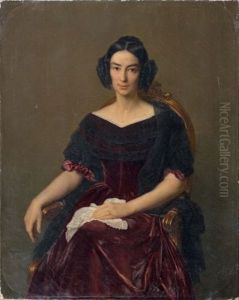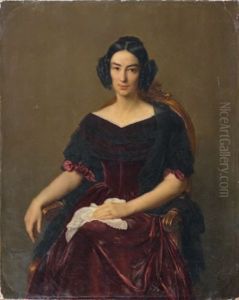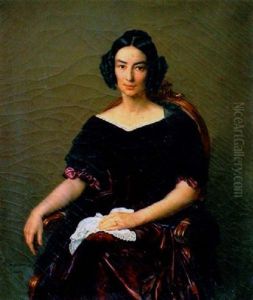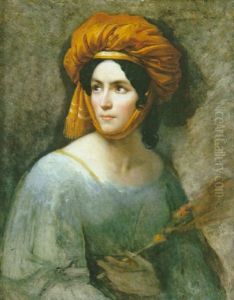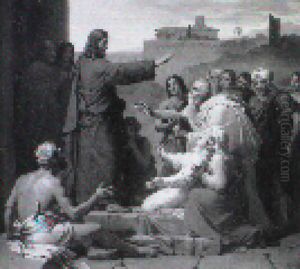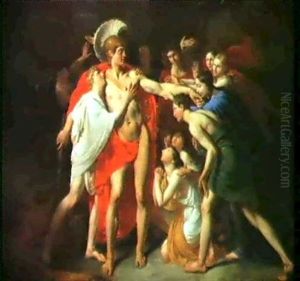Francois Louis Dejuinne Paintings
Francois Louis Dejuinne was a French painter born on December 26, 1786, in Paris, France. He is primarily remembered for his contributions to the Neoclassical movement, which sought to capture the simplicity and purity of the arts of ancient Greece and Rome. Dejuinne's artistic journey was shaped significantly by the turbulent times in which he lived, which included the French Revolution and the Napoleonic Wars. These events influenced not only the political and social landscape of France but also its artistic direction. Dejuinne, like many of his contemporaries, was drawn to the ideals of Neoclassicism as a way to restore order and beauty through art.
Dejuinne trained under the guidance of prominent painters of his time, including Jacques-Louis David, who was a leading figure in Neoclassical art. Under David's mentorship, Dejuinne honed his skills in drawing and painting, focusing on subjects inspired by classical antiquity and mythology. His works are characterized by their clear lines, balanced compositions, and serene subjects, which were intended to evoke the rationality and ideals of classical art.
Despite his skills and contributions to the art world, Francois Louis Dejuinne did not achieve the same level of fame as some of his contemporaries. However, his works were appreciated for their beauty and adherence to Neoclassical principles. He exhibited at the Paris Salon, a prestigious art exhibition, where his paintings were displayed alongside those of other well-known artists of the time.
Dejuinne's legacy is preserved through his paintings, which continue to be studied and admired for their craftsmanship and adherence to Neoclassical ideals. He died on January 11, 1844, in Paris, leaving behind a body of work that, though not widely recognized, contributes to the rich tapestry of French Neoclassical art. His paintings remain a testament to the enduring appeal of classical beauty and the talent of artists who sought to revive it during a period of great change in France.
